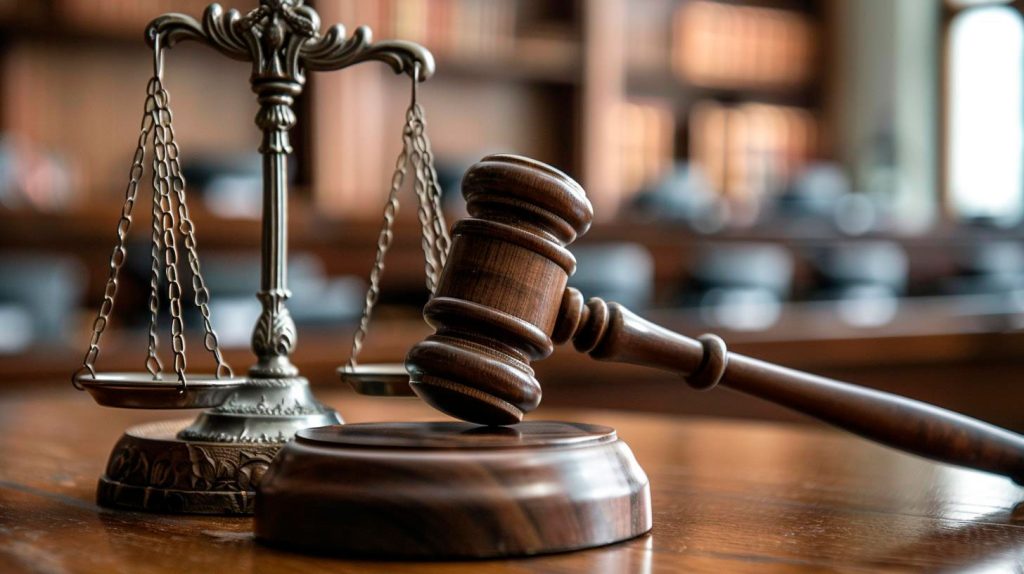
Navigating the Legal Landscape Resources for Consumers Facing Credit Score Damage
If you find yourself in this situation, it’s important to know that there are legal resources available to help you navigate the legal landscape and improve your credit score.
Understanding Credit Score Damage
Before diving into legal resources, it’s essential to understand how credit score damage can affect your financial well-being. A credit score is a three-digit number that represents your creditworthiness based on your credit history. If your credit score is low, it can lead to higher interest rates on loans and credit cards, difficulty getting approved for financing, and even rejection of rental applications.
According to recent statistics, about 33% of Americans have a credit score below 670, which is considered fair to poor. This means millions of consumers are at risk of facing credit score damage and its consequences. However, it’s important to know that there are legal protections in place to help consumers in this situation.
Legal Protections for Consumers
The Fair Credit Reporting Act (FCRA) is a federal law that regulates how credit reporting agencies use consumers’ information. Under the FCRA, consumers have the right to dispute inaccurate information on their credit reports and have it corrected or removed. Additionally, the FCRA also limits who can access your credit report and how it can be used.
Another important law that protects consumers is the Fair Debt Collection Practices Act (FDCPA). This law prohibits debt collectors from engaging in abusive or deceptive practices when collecting debts. If you believe that a debt collector has violated the FDCPA, you have the right to take legal action against them and seek damages for their violations.
Benefits of Legal Resources
By utilizing legal resources such as the FCRA and FDCPA, consumers can take action to improve their credit score and protect their rights. These laws provide consumers with the tools and protections they need to dispute inaccurate information on their credit reports, stop harassing debt collection practices, and ultimately, rebuild their credit history.
Research shows that consumers who actively monitor their credit reports and take steps to correct errors are more likely to see an improvement in their credit score over time. By working with a lawyer who specializes in credit repair and debt collection issues, consumers can navigate the legal landscape with confidence and achieve their financial goals.
Remember, you don’t have to face credit score damage alone. Seek help from a qualified lawyer who can guide you through the legal process and ensure that your rights are protected. With the right legal resources and support, you can overcome credit score damage and achieve financial success.
Common Credit Score Damage Situations and Legal Remedies
In this article, we will explore some common situations that can harm your credit score and the legal remedies available to address them.
Medical Debt
One of the most common reasons for credit score damage is medical debt. Unexpected medical expenses can quickly accumulate, leading to unpaid bills and collection accounts. In fact, a study by the Consumer Financial Protection Bureau found that medical debt accounts for more than half of all collection accounts on credit reports.
If you have been unfairly charged for medical services or your insurance company has failed to cover a legitimate claim, you may have grounds to dispute the debt and have it removed from your credit report. An experienced attorney can help you navigate the complex process of disputing medical debt and protecting your credit score.
Identity Theft
Identity theft is another common cause of credit score damage. In 2020 alone, there were over 1.3 million reports of identity theft in the United States. When a thief steals your personal information and uses it to open fraudulent accounts or make unauthorized purchases, it can wreak havoc on your credit score.
If you have been a victim of identity theft, it is crucial to act quickly to minimize the damage. By working with a lawyer who specializes in identity theft cases, you can take legal action against the perpetrators and dispute any fraudulent accounts on your credit report.
Foreclosure or Bankruptcy
Foreclosure and bankruptcy are major financial events that can have a lasting impact on your credit score. In 2020, there were over 500,000 foreclosure filings in the United States, and over 500,000 consumer bankruptcy filings. These events can stay on your credit report for up to seven or ten years, respectively.
If you are facing foreclosure or bankruptcy, it is important to seek legal advice to explore all of your options. An experienced attorney can help you negotiate with creditors, explore debt relief options, and work towards rebuilding your credit after such a significant financial setback.
Legal Remedies
When your credit score has been damaged due to any of these situations or other factors, there are legal remedies available to help restore your creditworthiness. Under the Fair Credit Reporting Act (FCRA), consumers have the right to dispute inaccurate or outdated information on their credit reports.
- File a dispute with the credit bureaus: If you believe there is incorrect information on your credit report, you can file a dispute with the three major credit bureaus – Equifax, Experian, and TransUnion. They are required to investigate the dispute within 30 days and remove any inaccuracies.
- Seek legal assistance: If you are facing difficulty in resolving credit score damage on your own, it may be beneficial to seek legal assistance. An attorney can help you navigate the complexities of credit repair and ensure that your rights are protected throughout the process.
- Monitor your credit regularly: To prevent future credit score damage, it is important to monitor your credit report regularly for any inaccuracies or signs of identity theft. By staying vigilant, you can take prompt action to address any issues that may arise.
Damage to your credit score can have far-reaching consequences, impacting your financial stability and future opportunities. By understanding common credit score damage situations and the legal remedies available, you can take proactive steps to protect your creditworthiness and secure your financial future. If you are facing credit score damage, don’t hesitate to seek legal assistance to help you navigate the complexities of credit repair and ensure that your rights are upheld.
Understanding Your Rights: Legal Protections for Consumers
Consumer Rights Overview
Consumer rights are designed to protect individuals from unfair or deceptive practices in the marketplace. These rights are established to promote fair competition, transparency, and accountability among businesses. Understanding your consumer rights can empower you to make informed decisions and take action when necessary to address any violations or breaches of your rights.
Key Consumer Rights
Some key consumer rights include the right to:
- Receive accurate information about products and services
- Be protected from false advertising and marketing tactics
- Receive goods and services that meet safety and quality standards
- Be treated fairly and honestly in all transactions
- Have access to a fair and efficient complaint resolution process
Legal Protections for Consumers
There are various laws and regulations in place to protect consumers and ensure that their rights are upheld. These legal protections cover a wide range of areas, including consumer transactions, product safety, data privacy, and more. By understanding these legal protections, consumers can take proactive steps to protect themselves and seek recourse when their rights are violated.
Consumer Protection Laws
Consumer protection laws exist at both the federal and state levels to protect consumers from unfair and deceptive practices. These laws cover areas such as false advertising, product safety, fraud, and unfair business practices. Some key federal consumer protection laws include the Fair Credit Reporting Act, the Consumer Product Safety Act, and the Federal Trade Commission Act.
Data Privacy Regulations
In an increasingly digital world, data privacy has become a major concern for consumers. Data privacy regulations, such as the General Data Protection Regulation (GDPR) in the European Union and the California Consumer Privacy Act (CCPA) in the United States, aim to protect consumers’ personal information and ensure that it is handled securely and responsibly by businesses.
Benefits of Knowing Your Rights
Understanding your consumer rights and the legal protections in place can provide several benefits, including:
- Empowering you to make informed decisions when purchasing products or services
- Protecting you from fraudulent or deceptive practices in the marketplace
- Providing you with recourse in the event of a dispute or violation of your rights
- Promoting fair competition and accountability among businesses
Statistics on Consumer Rights
According to a recent survey, approximately 65% of consumers are not aware of their rights when it comes to data privacy and protection. This lack of awareness can leave consumers vulnerable to privacy breaches and data misuse. By educating yourself about your rights, you can better protect your personal information and hold businesses accountable for any violations.
Another study found that consumer complaints related to unfair business practices have been on the rise in recent years. This highlights the importance of being informed about your consumer rights and taking action to address any issues that may arise in your interactions with businesses.
How to Protect Your Credit Score in Consumer Transactions
Understanding Your Credit Score
Your credit score is a numerical representation of your creditworthiness based on your credit history. It is used by lenders to assess the risk of lending you money and determines the interest rates you will be offered. The most common credit scoring model is the FICO score, which ranges from 300 to 850. A higher credit score indicates a lower credit risk, while a lower credit score suggests a higher risk.
There are five factors that affect your credit score:
- Payment history
- Amounts owed
- Length of credit history
- New credit
- Credit mix
Protecting Your Credit Score in Consumer Transactions
Here are some tips to help you protect your credit score in consumer transactions:
1. Pay Your Bills on Time
Payment history is the most important factor in determining your credit score. Make sure to pay all your bills on time to avoid late payments and negative marks on your credit report. Set up automatic payments or reminders to ensure you never miss a payment.
2. Keep Your Credit Utilization Low
Your credit utilization ratio is the amount of credit you are using compared to the total amount of credit available to you. Aim to keep your credit utilization below 30% to maintain a healthy credit score. Avoid maxing out your credit cards and spread out your balances across different accounts.
3. Monitor Your Credit Report Regularly
Check your credit report regularly to look for any errors or fraudulent activity. Report any inaccuracies to the credit bureaus and work to have them corrected. Monitoring your credit report can help you identify issues early and take action to protect your credit score.
4. Be Careful When Opening New Accounts
Every time you apply for new credit, a hard inquiry is placed on your credit report, which can temporarily lower your credit score. Be selective about opening new accounts and only apply for credit when necessary. Consider the impact on your credit score before opening new accounts.
5. Limit the Number of Credit Applications
Applying for multiple credit cards or loans within a short period can signal to lenders that you are in financial distress and may impact your credit score. Space out your credit applications and only apply for credit when needed to avoid negative impacts on your credit score.
The Benefits of Protecting Your Credit Score
Protecting your credit score in consumer transactions can have several benefits:
- Qualify for lower interest rates and better terms on loans and credit cards
- Improve your chances of approval for credit applications
- Save money on interest payments over time
- Build a positive credit history for future financial opportunities
By following these tips and staying proactive about protecting your credit score, you can maintain a healthy financial reputation and access better financial products and opportunities in the future. Remember that your credit score is a valuable asset that requires care and attention to protect.
For more information on how to protect your credit score in consumer transactions and legal advice on financial matters, contact our team of experienced lawyers today. We are here to help you navigate the complexities of consumer transactions and safeguard your financial interests.













It’s definitely important to be aware of your rights when it comes to your credit score. If you suspect any foul play, you should contact a lawyer ASAP.
Yeah, bro, I think there are laws that protect your credit score if something shady goes down in a consumer transaction. But you gotta be on top of it and know your rights.
I’ve heard that there are federal laws that can help protect your credit score from being damaged in consumer transactions. Is that true?
So, if I find an error on my credit report that’s messing up my score, what steps should I take to get it fixed?
Yes, that’s correct. The Fair Credit Reporting Act and Fair Debt Collection Practices Act provide consumers with rights to dispute and correct inaccurate information on their credit reports.
If the company fails to correct the error after you’ve provided evidence of the inaccuracy, you may have grounds to file a lawsuit against them for violating your rights under the FCRA or the FDCPA.
Isn’t it crazy how easy it is for your credit score to take a hit just from one bad deal? I need to know more about what I can do to protect myself.
But what if the company refuses to correct the mistake and it’s still hurting my credit score? Do I have any legal recourse?
Yo, I heard that there are some legal protections against credit score damage in consumer transactions. Is that true or just a myth?
You can start by sending a dispute letter to the credit reporting agency and the company that provided the inaccurate information. They are required to investigate and correct any errors within a reasonable time frame.